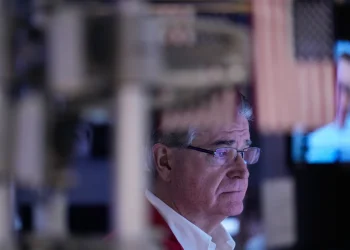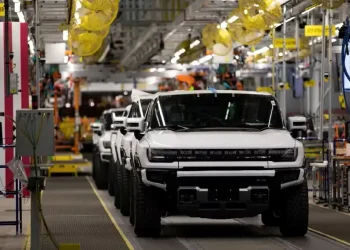Small Businesses Caught in Trump’s Tariff Whiplash: “I’m So Angry My Own Government Did This to Me”
Small businesses across the country are feeling whiplashed by the rollercoaster of President Donald Trump’s tariffs — and many are struggling to keep up. The last two months have been a whirlwind of changes, confusing rulings, and last-minute policy shifts that leave entrepreneurs scrambling to plan for the future.
Just last week, a U.S. court ruled that Trump had overstepped his authority with many of the import tariffs, only for an appeals court to quickly pause that decision the very next day. This back-and-forth has left small business owners in a tough spot — unsure when or if tariffs will stick, and forced to rethink everything from product lines to staffing.
“My fear is if this continues, there’s going to be a mass extinction of small businesses,” said Julie Robbins, CEO of Ohio-based guitar pedal maker EarthQuaker Devices. Her words capture the frustration felt by many entrepreneurs trying to navigate this unpredictable landscape.
A Constantly Changing Tariff Game
Trump’s tariff saga kicked off on April 2 with sweeping import levies slapped on countries worldwide. Since then, the situation has been anything but steady:
- Early April: A 90-day pause on reciprocal tariffs was announced — except for China.
- Later, tariffs on Chinese imports spiked to a staggering 145%.
- Some products like smartphones were then exempted from certain tariffs.
- The U.S. and China agreed to roll back reciprocal tariffs for 90 days in May.
- Late May brought threats of 25% tariffs on companies like Apple if they don’t manufacture phones in the U.S.
- Levies on European Union imports were pushed back until July 9.
These changes come through official announcements, social media, and sometimes just word of mouth — making it nearly impossible for businesses to keep track.
Small Businesses Feeling the Heat
Big companies like Gap are feeling the pinch, but it’s the small and niche brands that are bearing the brunt. According to the National Federation of Independent Business, the Small Business Optimism Index dropped for the second month in a row, largely because of the uncertainty.
Jack Leathem, an analyst at Canalys, explained, “It’s the smaller, niche brands that are really going to get hit hard.”
Take EveAnna Manley, CEO of Manley Labs, which makes high-end studio electronics. She’s had to cut employee hours by 25% due to tariffs. China, a key market for her business, has hit back with its own tariffs, complicating things even more. Manley’s sales have dropped nearly 20%, and her company has frozen product development.
“It’s just a freaking mess right now,” Manley said in late May, adding, “I’m so angry that my own government has done this to me.”
Finding Flexibility Amid Chaos
Experts say the best way for small businesses to survive is by staying flexible — diversifying supply chains and not putting all their eggs in one basket.
Assaf Gad, chief strategy officer at Intuition Robotics, shared how his company, which makes home robots for older adults, is planning ahead. They’re exploring alternatives to manufacturing in China and even eyeing international markets to reduce risks.
“This might be a good time to say, ‘Let’s not put all the eggs in one basket,’” Gad said. His company’s digital subscription model also helps cushion the blow from sudden tariff changes.
But Not Everyone Can Pivot Easily
Some businesses don’t have the luxury to shift quickly. Sarah O’Leary, CEO of Willow — a company making wearable breast pumps — says tariffs have forced them to pause exporting certain products made in China because the costs got too high.
When the recent court ruling sought to block many tariffs, O’Leary felt some relief but also warned that “there’s still so much uncertainty” and “the chaos will persist.”
Small businesses often operate on thin margins, she explained. Even small tariffs can be devastating.
“We don’t build our products with that much margin,” she said. “So we have to constantly evaluate what we can do to survive.”
The Bottom Line
For small businesses, Trump’s tariff policies have created a storm of unpredictability — leaving many anxious, angry, and scrambling to adapt. While some are pivoting and exploring new markets, others fear the long-term damage could be catastrophic.
In this high-stakes game of tariff whiplash, the hope for many is simple: some stability and the chance to get back to focusing on what they do best — building their businesses.
This article was rewritten by JournosNews.com based on verified reporting from trusted sources. The content has been independently reviewed, fact-checked, and edited for accuracy, neutrality, tone, and global readability in accordance with Google News and AdSense standards.
All opinions, quotes, or statements from contributors, experts, or sourced organizations do not necessarily reflect the views of JournosNews.com. JournosNews.com maintains full editorial independence from any external funders, sponsors, or organizations.
Stay informed with JournosNews.com — your trusted source for verified global reporting and in-depth analysis. Follow us on Google News, BlueSky, and X for real-time updates.














